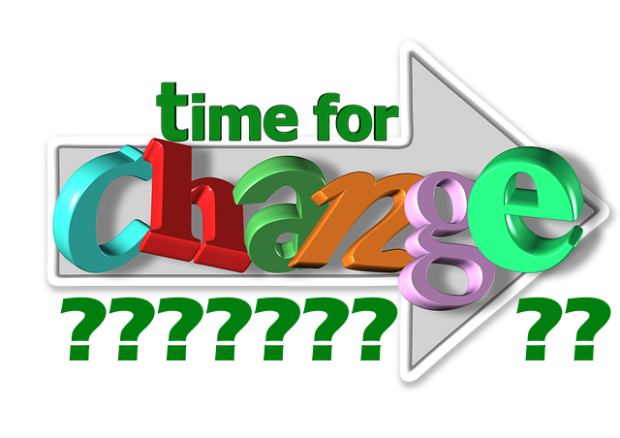What’s Next? Planning a Post-Covid Career Pivot

Prior to the pandemic, women had outnumbered men in the U.S. workforce. Then the pandemic hit and triggered an economic downturn which dealt a devastating blow to working women in particular. According to the Bureau of Labor Statistics, millions more American women than men have left the workforce in the last year, with women’s jobs becoming 1.8 times more vulnerable compared to men’s. Those who remain in the workforce face additional challenges like proliferate job withdrawal, reduced hours and lack of childcare which are contributing to many’s intent to leave. And while remote workhas changed assumptions about the nature of work, it isn’t always the best solution for balancing work and daily life. At the same time, many employers have failed to adequately support employee needs. Women in particular are paying attention to how their employers have responded to these unprecedented challenges. And not many like what they see.
In response to the events of the last year, working women have been forced to drastically change their household routines, caretaking arrangements, and career ambitions. As life crawls back towards quasi-normal, many are advancing in a new direction, rather than returning to sacrificing career advancement while taking the lead on household tasks. A year of lockdowns and disruptions has prompted many to reflect on their priorities, values and what finding a work-life balance really means. Indeed, an Axios survey found that one in four workers plan to look for a new job. Another conducted by AllBright found that women in particular are emerging from the crisis with a career move on their minds. Whether making a pivot to a different job or making a leap towards an entirely new field, there may never have been a better time to proactively determine the next career move.

In the early 2000s, I went through this kind of big career change. I was working as an HR professional in financial services at the time. This meant jobs in big cities, great travel, and an expatriate role across the world. There was much to love about my job. Yet, I still felt unfulfilled. Despite excelling as an HR professional and the job’s many perks, there were aspects of it that just didn’t fit me. After living through some major societal shifts in New York after 9/11 and in Singapore during the SARS epidemic, I began to rethink my priorities. I quit my job and applied to doctorate programs. These disruptions led me to my forever dream job as a business school professor.
And I’m far from the only person for whom societal shifts drove individual career change.
In 2020, I ran a research study with Mona Zanhour to study pandemic job experiences of working mothers and what next career steps they envisioned. Many of these women were taking steps to find a new job which better aligned with their work/life needs, talents, and career goals. Some also expressed seeking employers who shared their values, showed empathy, or could provide a viable career pathway for them. Our observations support the idea that it’s not just the effects of the societal shifts themselves: employer responses to societal shifts also drive individual career change.
This trend is continuing in 2021, where many individuals are evaluating what they value most about their work and employers. Careful consideration goes into what is no longer acceptable. That includes long commutes, frequent travel, or spending every weekday traveling to the office. Job features which impaired work/life balance that were once tolerable – details that workers may previously have been too busy to recognize— are now becoming dealbreakers. Now is the time to recraft a job, redirect a career, and reclaim wellbeing. Simultaneously, its time for organizations to realize what their employees expect and what will attract and retain top talent.
Particularly as the fall brings on the start of the school year and unpredictable pandemic-induced closures, working mothers will consider leaving employers who aren’t sufficiently supportive or flexible.
Navigating a successful career change can feel uncomfortable or nerve-racking. Before making the career change, there are some things to deliberate. Here are four recommendations to consider before taking the leap.
1. Assess and reflect.
Assess your current or last job and ask yourself, what was and wasn’t working, before the pandemic? Reflect on which projects, interactions, tasks and aspects of the job you enjoy and which you dislike. This may have to do with the peers you choose to work with, which assignments or projects you say “yes” to, and which skill sets help you thrive. Determining the experiences, tasks and talents you enjoy on a daily basis can reveal your purpose and inform how you course-correct your career.
You also want to look externally. How has your organization and industry fared through COVID? Is your job at risk? Certain industries are struggling, while others are booming. There will be lingering effects in how consumers buy things, expect service, and move through the post-COVID world. Consider these shifts in where to seek your next job or redirect your business. There are also opportunities that have come out of the pandemic such as a demand for more virtual socialization. One of our research participants, for example, ran a consulting business prior to COVID and shifted from one-on-one sessions to instead offer virtual group coaching workshops.
2. Skill-build.
Once you’ve determined your direction, identify which skills you may need to get there. The time at home has led many of us to partake in virtual learning, rediscover old joys, or realize talents that have been long underutilized. Now, consider how to direct these developmental efforts towards the next prospective job. This may mean crafting a current job to better hone your talents, or seeking or sharing a new job that can help those skills to blossom. Consider degrees or free virtual courses, such as Coursera and Edx. One research participant, a legal advisor, was inspired to pursue her dream to become a birth doula and started online training courses during COVID lockdowns.

3. Warm your relationships (even virtually).
As the saying goes, you’ve got to “network to get work.” Yet socially distancing has left us bereft of hallway conversations and after work happy hours. If professional relationships have dwindled, now is the time to warm them up. Plan a virtual chat with that buddy from college. Reconnect with a colleague from a former job. Or set up an informational interview with someone who is in the type of job you want. I recently brainstormed with a job-hunting friend a list of 44 individuals he could reach out to for a “relationship warm up” conversation. This takes time. But is often one of the best ways to fact-find and secure the next great opportunity.
4. Persist.
Career changes are a big deal. Great jobs remain competitive. Uncertainty is stressful. Yet bright sides of this whole pandemic experience means that this time is important to capitalize upon, so persistence is essential. Virtual workhas enhanced opportunities with expanded pools of applicants and prospective employers. This means you can’t let up. Keep connecting with people in the industry. Attend every virtual networking opportunity or industry event you can. Take advantage of your alma mater’s college career services and alumni department. This is the time to connect, listen, reflect, and then make that move. As stated by a “solopreneur” research participant who started her own business:
“I think people will be more intentional and reflective in how they want to live, and how that encompasses work going forward. It’s a lot harder to make change when working 110 miles per hour. This is the time to course correct.”
The COVID crisis has taught many different lessons. In seeking a new career, making a great leap, or pivoting to a fresh start, now is the time to proactively determine your next career move. Be strategic. Be sure this next career chapter is guided by the vision of what you want your work – and life – to be.
This guest post was authored by Dana Sumpter
Dana Sumpter, PhD, is an Associate Professor of Organization Theory and Management at Pepperdine Graziadio Business School. She is a former Vice President of Human Resources at Citigroup. Learn more about Dana on her website.



